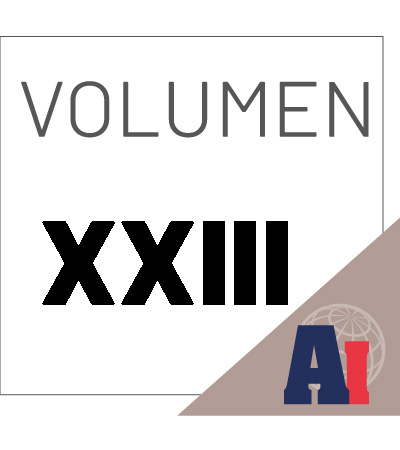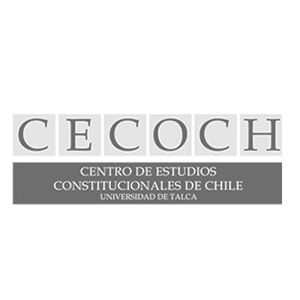Le refus d’approbation d’une sentence arbitrale étrangère fondée sur l’absence d’impartialité de l’arbitre
Cet article traitera de la situation dans laquelle il est allégué que la ratification de la sentence arbitrale étrangère n’est pas valable en raison du manque d’impartialité de l’arbitre. Elle cherchera d’abord à comprendre ce que la doctrine et la jurisprudence considèrent comme l’absence d’impartialité de l’arbitre. Ensuite, il sera vérifié si le manque d’impartialité de l’arbitre est susceptible d’entraîner le refus de ratification de la sentence arbitrale étrangère. On discutera de ce qui serait la base du refus, à partir de l’analyse de la Convention de New York de 1958. La présentation de la position de la jurisprudence étrangère et en particulier de la jurisprudence brésilienne sur le sujet sera importante pour tirer des conclusions quant à la possibilité ou pas de refus et d’essayer d’identifier les paramètres utilisés dans les décisions de refus.
Details de l'article
Uso de licencias Creative Commons (CC)
Todos los textos publicados por el Anuario Mexicano de Derecho Internacional sin excepción, se distribuyen amparados con la licencia CC BY-NC 4.0 Internacional, que permite a terceros utilizar lo publicado, siempre que mencionen la autoría del trabajo y la primera publicación en esta revista. No se permite utilizar el material con fines comerciales.
Derechos de autoras o autores
De acuerdo con la legislación vigente de derechos de autor el Anuario Mexicano de Derecho Internacional reconoce y respeta el derecho moral de las autoras o autores, así como la titularidad del derecho patrimonial, el cual será transferido —de forma no exclusiva— al Anuario para permitir su difusión legal en acceso abierto.
Autoras o autores pueden realizar otros acuerdos contractuales independientes y adicionales para la distribución no exclusiva de la versión del artículo publicado en el Anuario Mexicano de Derecho Internacional (por ejemplo, incluirlo en un repositorio institucional o darlo a conocer en otros medios en papel o electrónicos), siempre que se indique clara y explícitamente que el trabajo se publicó por primera vez en el Anuario.
Para todo lo anterior, deben remitir la carta de transmisión de derechos patrimoniales de la primera publicación, debidamente requisitada y firmada por las autoras o autores. Este formato debe ser remitido en PDF a través de la plataforma OJS.
Derechos de lectoras o lectores
Con base en los principios de acceso abierto las lectoras o lectores de la revista tienen derecho a la libre lectura, impresión y distribución de los contenidos del Anuario por cualquier medio, de manera inmediata a la publicación en línea de los contenidos. El único requisito para esto es que siempre se indique clara y explícitamente que el trabajo se publicó por primera vez en el Anuario Mexicano de Derecho Internacional y se cite de manera correcta la fuente incluyendo el DOI correspondiente.
Références
Abbud, André de Albuquerque Cavalcanti, Homologação de sentenças arbitrais estrangeiras, São Paulo, Atlas, 2008.
Alkhayeri, Jaffae e Dash, Ashlesha, “Grounds of the Challenge of Arbitrators: The Difference between Independence and Impartiality”, International Journal of Law Management & Humanities, vol. 5, 2022.
Barros, Vera Cecília Monteiro de, Exceção de ordem pública na homologação de sentença arbitral estrangeira no Brasil, São Paulo, Quartier Latin, 2017.
Bermann, George A. (ed.), Recognition and enforcement of foreign arbitral awards: the interpretation and application of the New York convention by national courts, New York, Springer, 2017.
Born, Gary, International Commercial Arbitration, 3a. ed., Kluwer Law International, 2021.
Carmona, Carlos Alberto, Arbitragem e processo: um comentário à Lei n. 9307/96, 3a. ed., São Paulo, Atlas, 2009.
Carmona, Carlos Alberto, “Em torno do árbitro”, Revista de Arbitragem e Mediação, vol. 28, 2011.
Fornasar, María Laura, “A Homologação de Sentenças Arbitrais Estrangeiras sem Fundamentação”, Revista de Arbitragem e Mediação, vol. 65, 2020, pp. 209-224.
Fornasar, María Laura, “A Ordem Pública na Homologação de Sentenças Arbitrais Estrangeiras”, Revista de Processo, vol. 311, 2021, pp. 355-374.
Gaillard, Emmanuel e Bermann, George A, The UNCITRAL Secretariat Guide on the New York Convention, Leiden, Brill Nijhoff, 2017.
Junior, Tercio Sampaio Ferraz, “Suspeição e impedimento na arbitragem”, Revista de Arbitragem e Mediação, vol. 28, 2011.
Kronke, Herbert (ed.) et al., Recognition and enforcement of foreign arbitral awards: A global commentary on the New York Convention, Alphen an den Rijn, Kluwer Law International, 2010.
Lemes, Selma Maria Ferreira, Árbitro: princípios da independência e da imparcialidade, São Paulo, LTr, 2001.
Lemes, Selma Maria Ferreira, “O dever de revelação do arbitro, o conceito de dúvida justificada”, Revista de arbitragem e mediação, vol. 36, 2013.
Muniz, Joaquim, Curso Básico de Direito Arbitral, 4a. ed., Curitiba, Juruá, 2017.
Müssnich, Francisco Antunes Maciel, “A Escolha dos Árbitros: A Arbitragem Vale o que o Árbitro Vale”, em Moreira, Ana Luiza Pinto et al., Arbitragem e Outros Temas de Direito Privado: Estudos Jurídicos em Homenagem a José Emilio Nunes Pinto, São Paulo, Quartier Latin, 2021.
Nanni, Giovanni Ettore, “Confiança na arbitragem: o seu papel no contrato intuitu personae de árbitro”, Revista dos Tribunais, São Paulo, vol. 1041, julho 2022.
Oliveira, Leonardo V. P. de e Miranda, Isabel, “International public policy and recognition and enforcement of foreign arbitral awards in Brazil”, Journal of International Arbitration, Ginebra, vol. 30, núm. 1, 2013, pp. 49-70.
Schmidt, Gustavo et al., Comentários à Lei de Arbitragem, Rio de Janeiro, Método, 2021.































